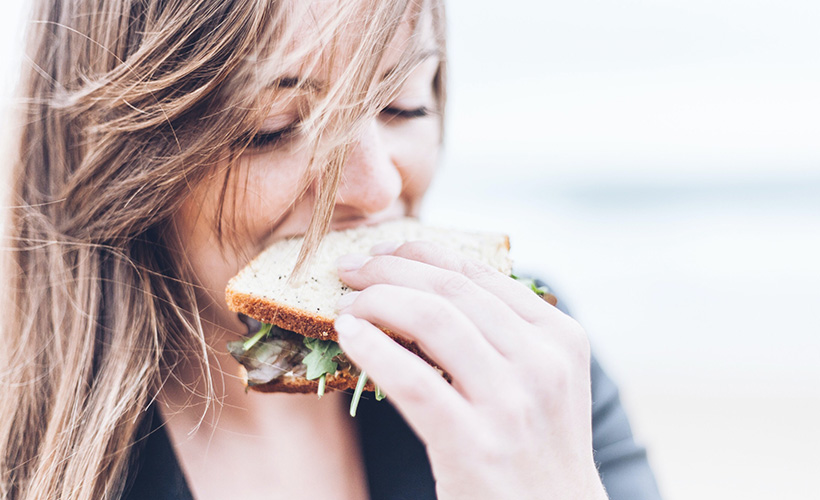What causes obesity?
Some contributing factors include:
- Over-reliance on convenience foods which tend to be lacking in nutrients; high in kilojoules; and often with added fats and sugars.
- Refined, processed foods with added sugars cause insulin levels to rise, leading to increased fat storage and poor appetite control.
- Metabolic disturbance from over-consumption of these processed, high Glycaemic Index (GI) foods. This leads to insulin resistance and a tendency to store body fat instead of burning it for energy.
- Low-fibre diets lacking in low GI carbohydrates needed for energy and satisfying hunger, eg. fresh fruits and vegetables, whole grains, beans and legumes.
- Creation of a “fast food” culture with lifestyle dependence on takeaways and “supersized” food and drink options.
- Poor dietary patterns with skipped meals (especially breakfast) leading to blood sugar dips and uncontrollable carbohydrate binges later in the day.
- An increasingly sedentary lifestyle with labour-saving devices and a resulting lack of physical exertion and exercise.
- Genetic factors can play a part.
As many have discovered, simply cutting back calories without addressing lifestyle imbalance, stress, inactivity and poor dietary patterns may result in temporary weight loss, but it’s not long before the weight returns… often bringing extra kilos with it! So what’s the secret to long-term, healthy weight loss?
Preventing and treating weight gain
1. Be patient!
It usually takes a long time for weight to gradually creep on, so don’t expect or aim for drastic, rapid weight loss. While this may be possible with extreme dieting, the health and weight consequences can be serious. Losing weight rapidly results in loss of lean muscle mass as well as body fat. Reducing your muscle mass also reduces your basal metabolic rate (the amount of energy your body needs to simply stay alive and do it’s housekeeping). The lower your basal metabolic rate, the fewer calories you require to stay alive, and the faster your body turns calories into stored fat. A healthy weight loss should be between 500g and 1kg a week.
2. Exercise
Exercise is an essential part of any weight loss programme. Don’t be tempted to think that you can lose weight from cutting back on your calories, and still having a love affair with the sofa! Not only does regular exercise burn calories, leaving fewer to cling to your hips as fat, it also helps to maintain lean muscle mass which helps you continue to burn calories (even when you’re not exercising). If you’re not used to exercise, resist the temptation to jump in at the deep end. Find an activity that you will actually enjoy, and start small, gradually building up as your fitness improves. Aim for eventually exercising for 45 minutes 4–5 times a week. Go for a mixture of aerobic activity such as walking, swimming, cycling, jogging, dancing, racquet sports, etc; and weight-bearing or resistance activity such as doing free weights, or working out on gym machines.
3. Energy in should equal energy out
This is the magic formula for weight maintenance. That means increasing physical activity, and reducing your kilojoule intake. Depending on your starting weight, sex and age, your energy requirements for weight loss will differ. Resist the temptation to go on a “fad” diet. Not only are they usually unbalanced and lacking in nutrients, they also lead to rapid weight loss and just as rapid rebound weight gain when you stop “dieting”. Some useful tips to help you cut down on kilojoules:
- Eat from a smaller plate so that portion size is reduced
- Drink a large glass of water 15 minutes before your meal
- Change the proportions of food on your plate. Reduce the carbs (potato, pasta, rice) in favour of more vegetables and salad
- Remember that it takes your brain about 15 minutes to register that your stomach is full, so after your meal wait at least that long before deciding if you really need to eat more food
- Eat little and often and never skip meals. Skipping breakfast will set you up for blood sugar dips later in the day, with ravenous hunger. Always eat a healthy breakfast, with low GI carbohydrates and some protein. Have a healthy snack between breakfast and lunch, and lunch and dinner…. maybe a piece of fruit or some unsweetened yoghurt.
4. Stay away from the ‘low-fat’ trap
Dieters often think that the way to lose weight is to cut out every scrap of fat in their diet. Not only will this lead to nutritional deficiency, it will also leave you insatiably hungry. Many fat-reduced foods have added sugars to make them taste more palatable. These sugars increase the Glycaemic Index of the food, meaning that they cause a blood sugar rise and then a blood sugar dip, with more hunger! Fat is a vital part of appetite regulation. Choose from healthy fats such as oily fish, nuts and seeds, avocado, olive, flax and coconut oil.
5. Set small goals and reward yourself
Have an overall large goal for your weight loss, but set several small goals along the way, and reward yourself (not with food) when you reach them.
















Community